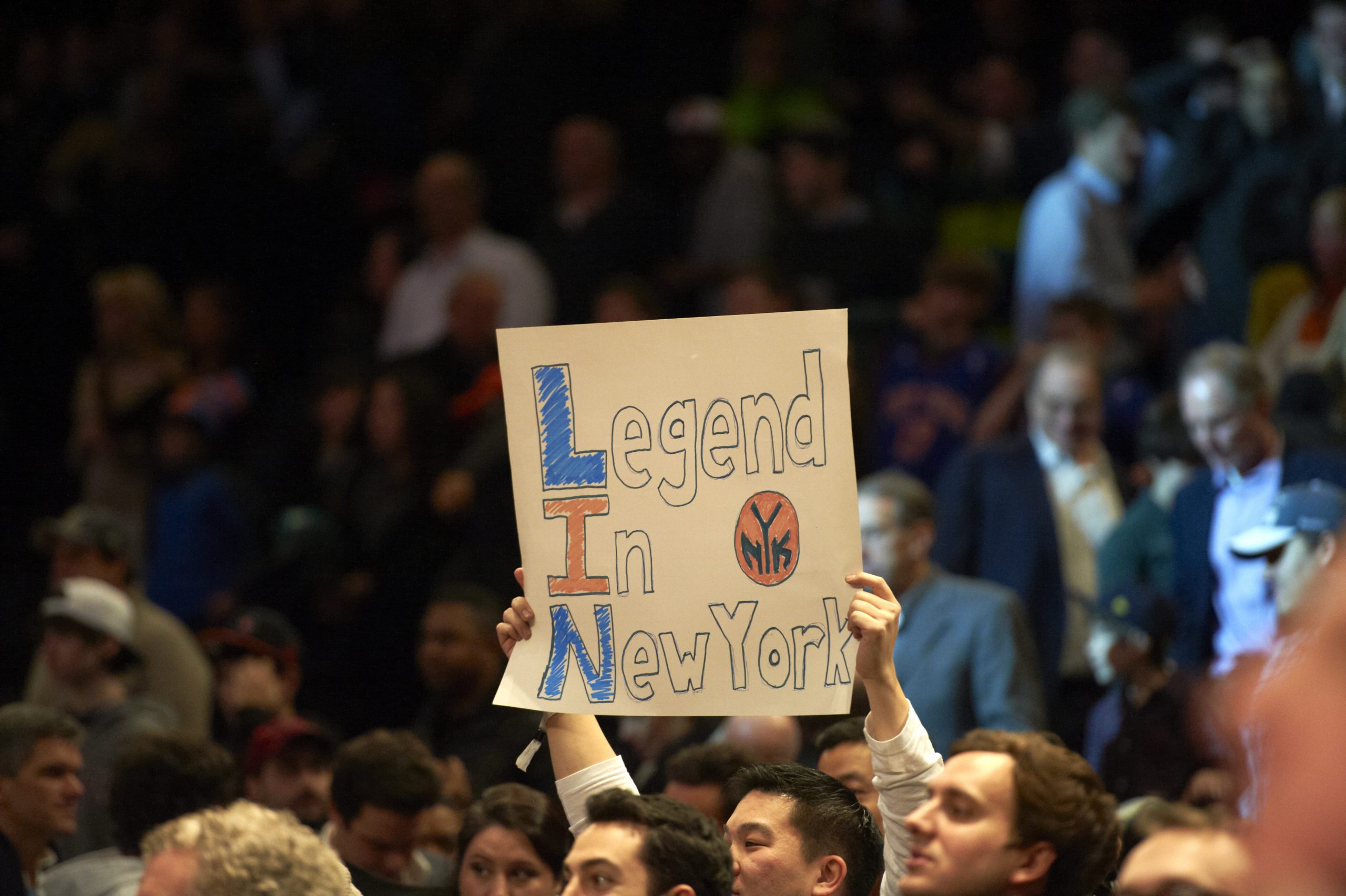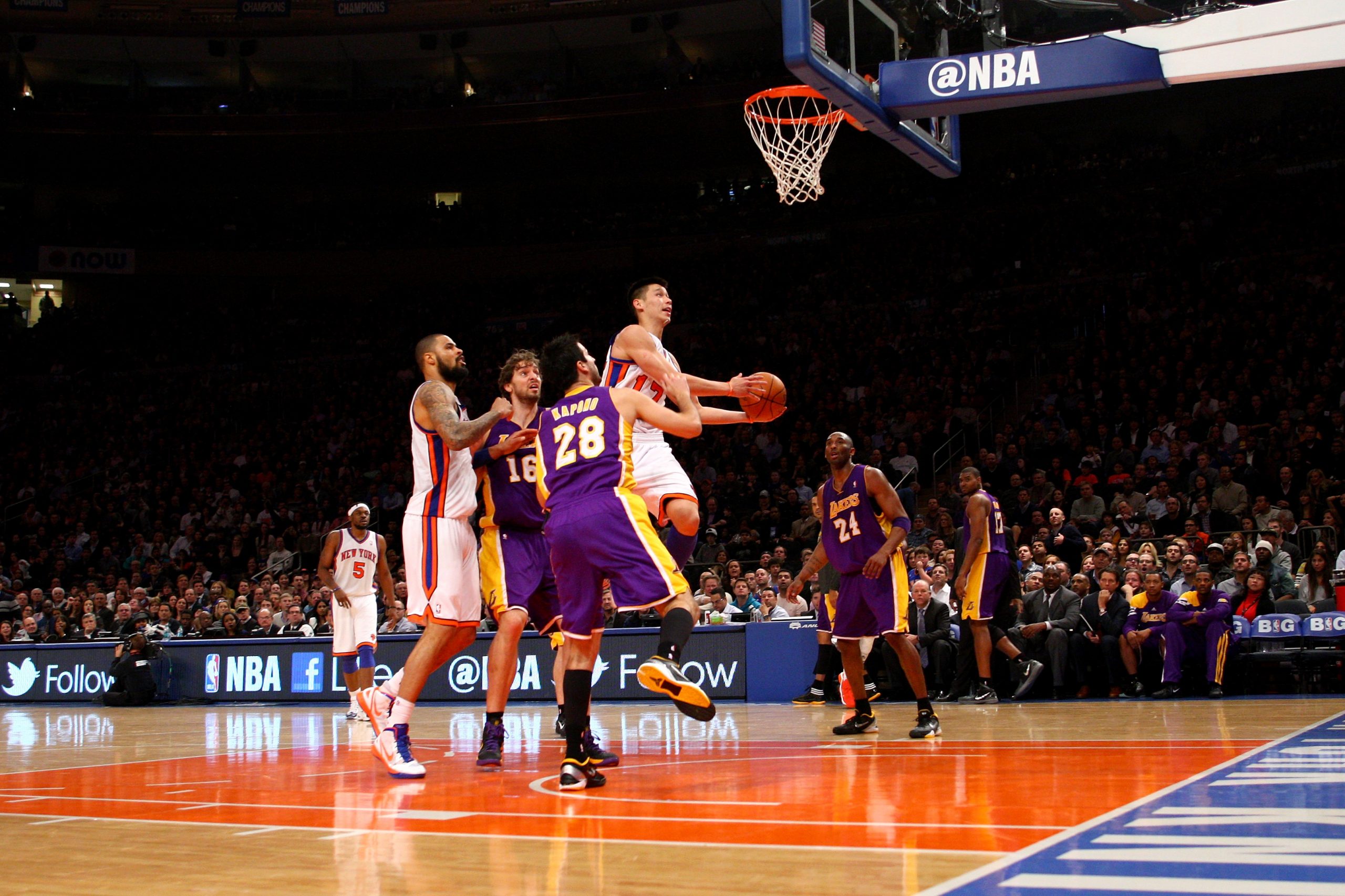‘38 at the Garden’ Tells the Powerful Story of Jeremy Lin and How He Not Only Transcended the Game, but Inspired the World
It’s February 10, 2012, and filmmaker Frank Chi is leaving Washington, DC on a train headed to Madison Square Garden in hopes of scoring tickets to a Friday night New York Knicks game against the Los Angeles Lakers. But this wasn’t just any game. After standout performances against the Nets, Wizards, and Jazz, Linsanity was coming to a head and the late-Kobe Bryant was coming to the Mecca.
Everyone knew it was a big game, even the scalpers. The cheapest tickets available were going for $700. Chi decided he’d watch the game at a karaoke bar instead in the neighboring Koreatown, surrounded by people who looked just like him. And together, they all witnessed one of their own, Jeremy Lin, an undrafted Asian American point guard that went from Harvard to the NBA, drop 38 points on the Lakers in an electric 92-85 victory.
“Looking back at that experience, I don’t think I would have traded it for actually being at the Garden, if I’m being totally honest with you,” Chi says over the phone. “I [was] surrounded by people who look like me, maybe a little older. Jeremy played out of his mind the whole game so we had two hours of people just losing it. People are crying, they’re running around, they’re screaming. It’s unbelievable.I’m doing all of these things too, but I’m like what is this? Is this a cathartic reaction to seeing [someone] break the stereotypes we all deal with?”
A decade later, things have now come full circle for Chi, who is the director of 38 At The Garden that captures Lin’s incredible run in 2012 while playing on the Knicks. The film is a Mr. Fahrenheit and GTG Entertainment production and was spearheaded by GTG Entertainment Group’s founder Samir Hernandez, who produced the documentary alongside Academy-Award winner Travon Free.
38 At The Garden, which premiered on HBO this October, was inspired by that night Chi spent watching Lin take over at the Garden, but the idea for the film didn’t come into fruition until eight years later after a conversation he had with Free in late 2020.
“We were talking about impossible moments. An impossible moment is when society at large assigns to a group of people that you can’t do something and someone just comes out of nowhere and just shatters that to pieces. We were talking about that in the context of Obama,” Chi tells SLAM. “That is the biggest impossible moment any of us have lived through. Travon is a producer. And a director. We were just talking about stories. And I was like, the only other moment that has felt like Obama to me, and I’m Asian, was Linsanity. This is why the movie was called 38 At The Garden. The two most magical nights of my life: the first was the night Barack Obama was elected president. The second was the night Jeremy Lin dropped 38 at the Garden.”
Chi admits that he dealt with his own doubts about the film. He was initially unsure if this was a story that anyone cared to hear during a time when there was so much anti-Asian hate and violence going on around the country, and the world.
“The first thing I did was doubt it,” Chi says. “I was like, ‘That was eight years ago. Nobody cares what Asian people think in this country. We’re invisible.’ So I thought about it for a couple weeks. I hate that that was my first reaction but that’s my trained instinct in me as an Asian person. This was 2020 and anti-Asian violence was starting to creep up.”
“We spent a little time going back and forth about whether it was possible or what that looked like,” Free adds. “[Chi] sat with it for a little while and then he came back to me like, ‘Okay, I made a deck.’ That’s when I knew he couldn’t let it go. I’m glad he didn’t. It ended up being such a fun movie to make. But also just an important movie to make.”

While the movie does spotlight the personal triumph of Jeremy Lin’s transcendent basketball journey, and features interviews from Lin himself, as well as former teammates, journalists and comedians, the movie is about much more than just basketball.
“There’s a way to explain this film without any basketball whatsoever. It’s this: part 1 is about stereotypes. Part 2 is about what happens when someone shatters those stereotypes on the world stage. And part 3 is about today, what happens when those stereotypes have been weaponized,” Chi says. “And when they’re weaponized, they turn into anti-Asian violence. That’s a very easy film to understand once you say it out loud. Once we got to that conversation, a lot of things clicked.”
“Being able to have this POV and take this from then to now, it’s the perfect moment to tell this story and this zeitgeist as opposed to leaning into more divisiveness, we are able to bring people together,” Hernandez says.
It was important to Chi, Free, and Hernandez to spotlight Lin’s experience as an Asian American to further explain the significant impact his story has had on so many people around the world.
“People don’t realize that sports and politics have always been married in this country. Sports and politics have always been married in the world. It’s hard to separate the idea that the political nature of our lives stops outside the gate of the stadium when so much of who we are is what makes great athlete stories important,” Free explains.

With so many emotional layers jam-packed into the film, fans of the game can expect so much more than a highlight reel of Lin’s time on the Knicks. It’s a story meant to inspire, and resonate with everyone, especially those who have had to battle against stereotypes and doubt.
“It’s bigger than a basketball movie and ultimately, it’s not really about basketball. And that’s kinda where we left it,” says Free.
Photos via Getty Images.